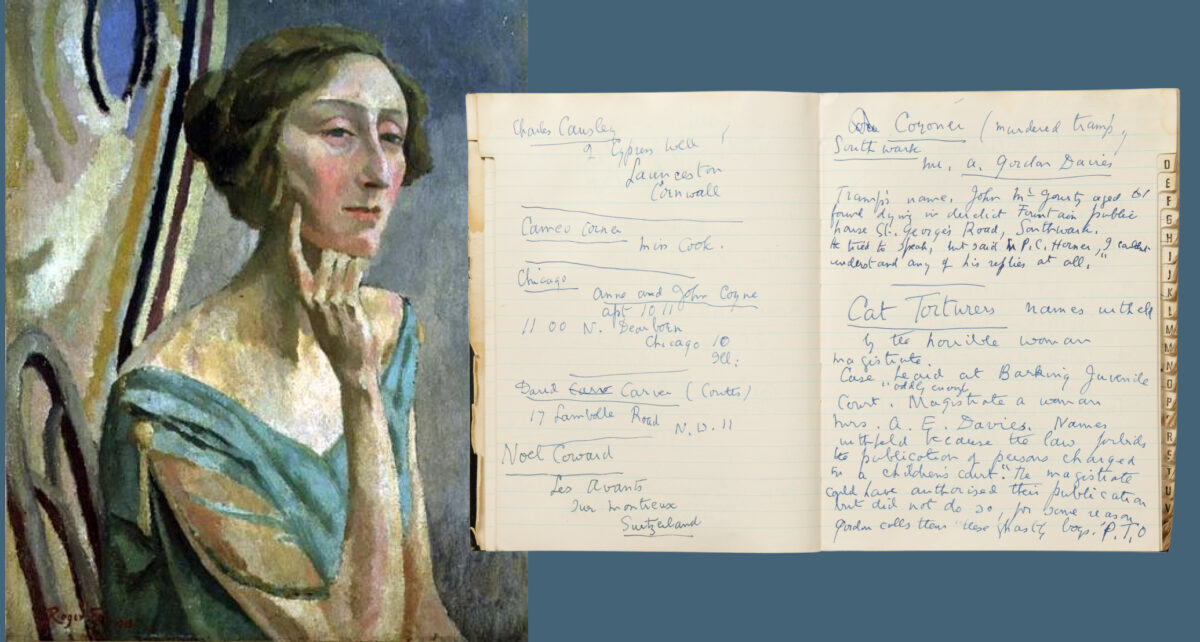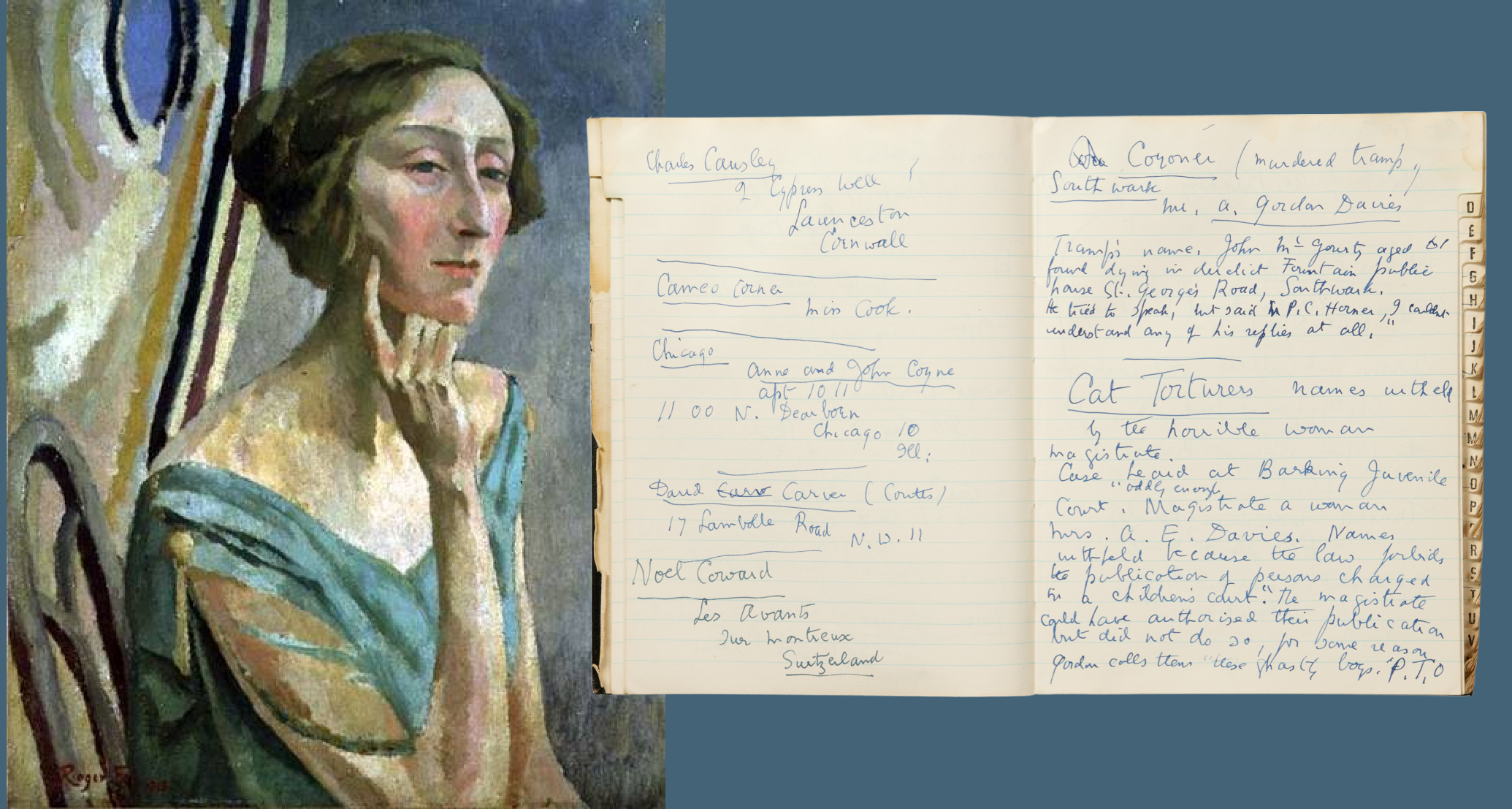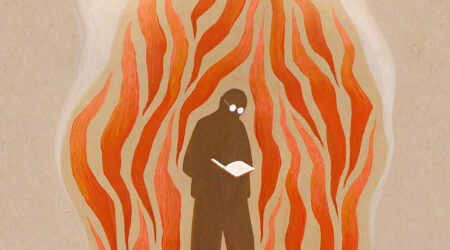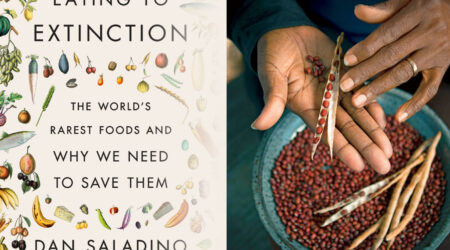For months Denise Kelly, a general books specialist and valuer with the British auction house, Dreweatts, has been listening to the ghosts of the Roaring Twenties. “I have a diary of Sacheverell Sitwell, and everyone is in it, everyone,” she says. “There isn’t a line where there isn’t a reference to a Virginia Woolf or a Noel Coward. It has captivated me–I swear I can hear them.”
Kelly is part of a team that has been itemizing the belongings of Weston Hall, a tudor-style manor that for the three centuries was home to the Sitwells. Earlier this year it was sold. Now the contents–including diaries, letters, and photographs of Edith, Osbert, and Sacheverell Sitwell–are to follow, a final farewell to a trio of siblings who captivated and confounded Britain throughout the 1920s. For Kelly, the trove of ephemera serves to illuminate the energy and dynamism of the times. “It was decadent, it was outrageous, they all lived life to the full,” she says. “There isn’t one item that you pick up and think, Oh, boring.”
Take, for example, Edith Sitwell’s address book. Leafing through its pages a lost world unfolds: Jean Cocteau, Elizabeth Arden, Stephen Spender, George Cukor, Graham Greene, Evelyn Waugh, Cecil Day-Lewis, Gore Vidal, Noel Coward. Where the names are less familiar, Sitwell helps us (and herself) with scabrous annotations: “Psychopath who insulted me after television,” reads one. “That Blasted Priest!,” reads another. Then there is the “Insolent women with the shrieking children!, and “Impertinent Catholic ass.”
As the beating heart of the so-called Bright Young Things, the exuberant clique of artistic aristocrats that blazed a trail through gossip columns, the Sitwells were both prolific and extraordinarily close, as their voluminous correspondence attests. “They write to each other every five minutes,” says Kelly. They were, she adds, fastidious about punctuation. The letters also capture the whirl of a society that required a different kind of social networking than today. “You could easily fall off the radar and be forgotten if you just weren’t in the right restaurants,” says Kelly. Times have changed, but our fascination with privilege has not. What are the Kardashians, after all, but a 21st century of the Sitwells, without the poetry?
Today, as in her own lifetime, Edith Sitwell is frequently referred to as an eccentric, a label she shrugged off as the simplification it was. “I am not an eccentric,” she once said. “It’s just that I am more alive than most people.” She certainly turned her head against the tide of fashion, dressing in a style that summoned the Plantagenet lineage she was so proud of, but she was also opinionated, witty, and extremely sharp. “Perhaps the world’s second-worst crime is boredom; the first is being a bore,” wrote Cecil Beaton, court photographer to the Bright Young Things. No-one ever accused Edith Sitwell, or her brothers, of being bores.
Take a virtual tour of Weston Hall and the Sitwells: A Family Legacy at Dreweatts.
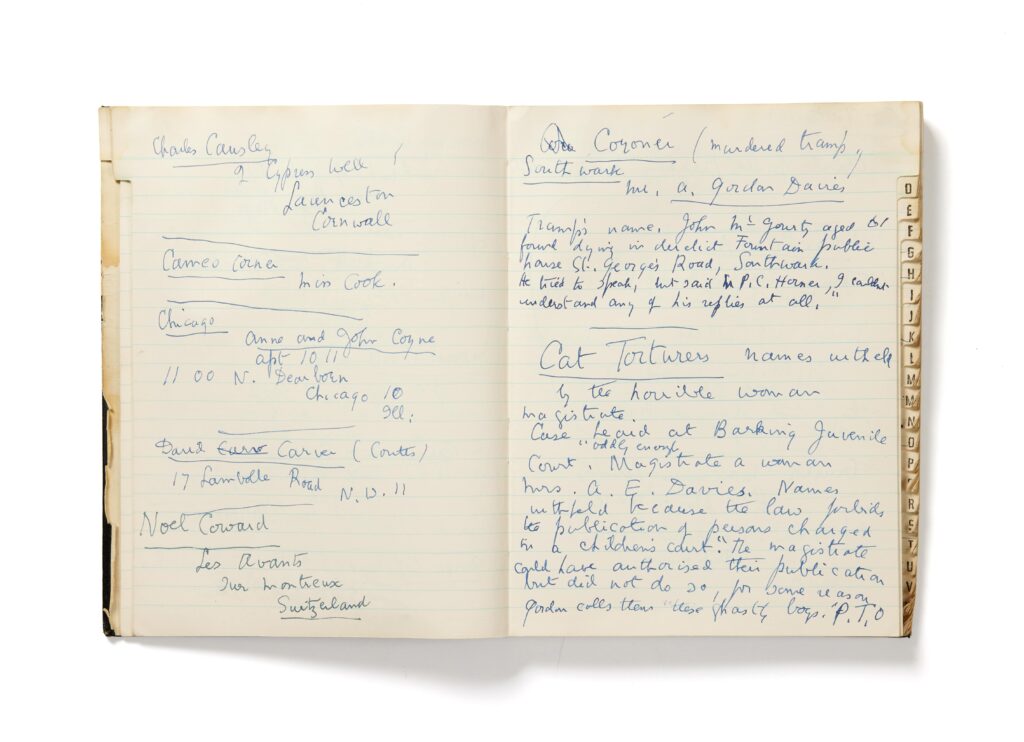
An Alwych ruled, indexed address book, with approximately 388 hand-written entries by Edith Sitwell and others. 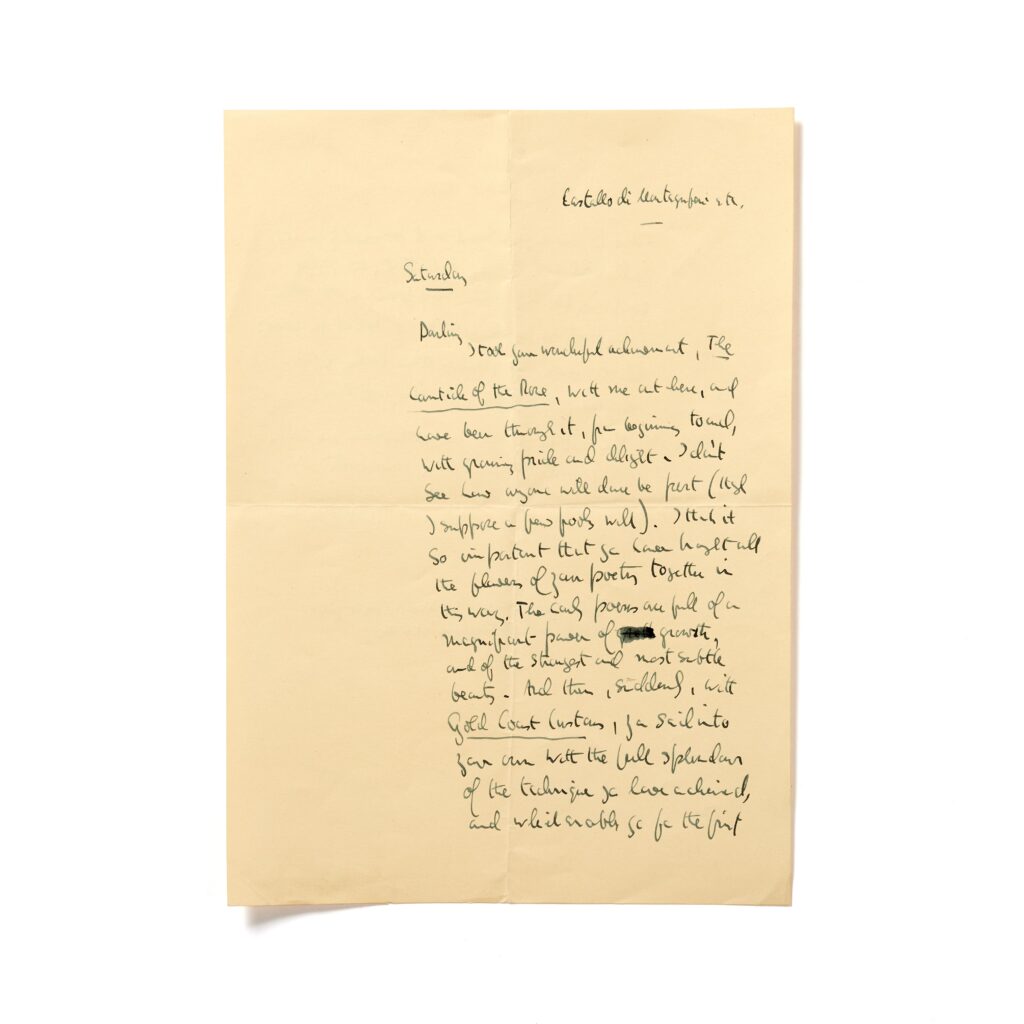
Letter to Edith Sitwell from her brother Osbert, send from Castello di Montegufoni, c. 1949 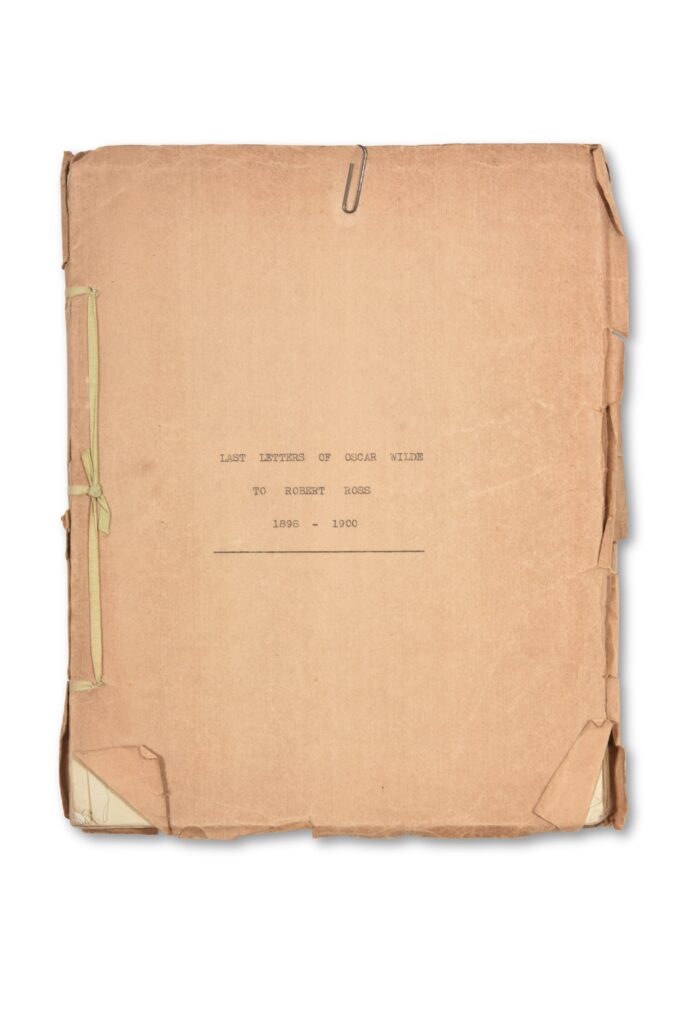

Last Letters of Oscar Wilde to Robert Ross, 1898-1900; transcription of 60 typescript letters with numerous names, references to individuals or homosexuality underlined in red ink. 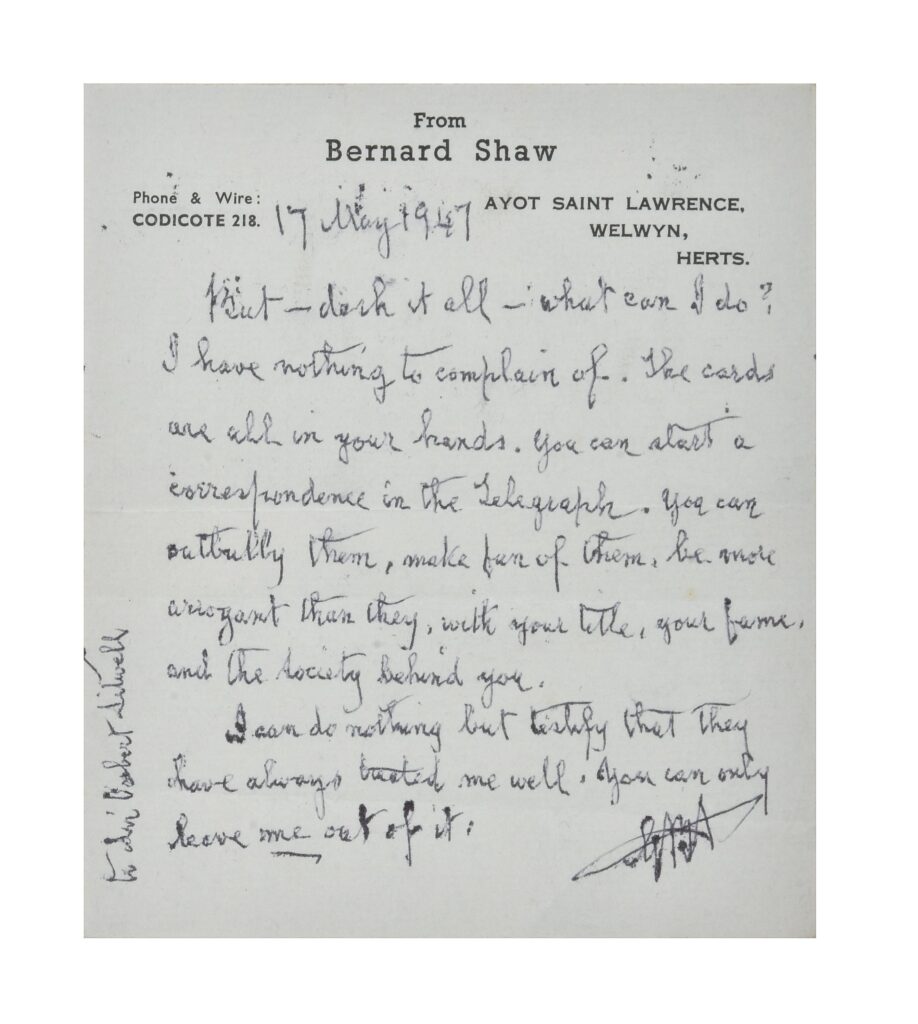
Letter to Sir Osbert Sitwell from George Bernard Shaw, 1947, reminding Sitwell of his privileged position in life.

